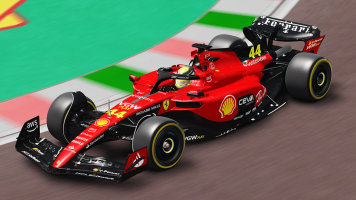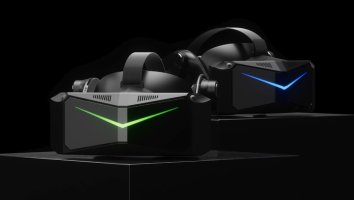QuickBMS generic files extractor and reimporter 0.12.0
by Luigi Auriemma
e-mail:
me@aluigi.org
web: aluigi.org
(Aug 24 2022 - 10:55:28)
quickbms.com Homepage
zenhax.com ZenHAX Forum
@zenhax @quickbms Twitter & Scripts
Usage: C:\Users\USER\Downloads\quickbms\quickbms.exe
[options]
<script.BMS>
<input_archive/folder>
[output_folder]
Options:
-l list the files without extracting them
-f W filter the files to extract using the W wildcards separated by comma or
semicolon, example -f "{}.mp3,{}.txt;{}myname{}"
if the filter starts with ! it's considered an ignore/exclusion filter,
if .txt it's read as text file with multiple filters, * and {} are same
example: quickbms -f "{}.mp3;!{}.ogg" script.bms archive.dat output
example: quickbms -f myfilters_list.txt script.bms archive.dat
use {} instead of * to avoid issues on Windows, multiple -f are ok too
-F W as above but works only with the files in the input folder (if used)
example: quickbms -F "{}.dat" script.bms input_folder output_folder
-o overwrite the output files without confirmation if they already exist
-k keep the current files if already exist without asking (skip all)
-K automatically rename the output files if duplicates already exist
-r experimental reimport option that should work with many archives:
quickbms script.bms archive.pak output_folder
modify the needed files in output_folder and maybe remove the others
quickbms -w -r script.bms archive.pak output_folder
you MUST read section 3 of quickbms.txt before using this feature,
use -r -r for the alternative and better REIMPORT2 mode
use -r -r -r for REIMPORT3 that shrinks/enlarges archive if no offset
-u check if there is a new version of QuickBMS available
-i generate an ISO9660 file instead of extracting every file, the name of
the ISO image will be the name of the input file or folder
-z exactly as above but it creates a ZIP file instead of an ISO image
Advanced options:
-d automatically create an additional output folder with the name of the
input folder and file processed, eg. models/mychar/mychar.arc/*,
-d works also if input and output folders are the same (rename folder)
-D like -d but without the folder with the filename, eg. models/mychar/*
-E automatically reverse the endianess of any input file by simply reading
each field and writing the reversed value, each Get produces a Put
-c quick list of basic BMS commands and some notes about this tool
-S CMD execute the command CMD on each file extracted, you must specify the
#INPUT# placeholder which will be replaced by the name of the file
example: -S "lame.exe -b 192 -t --quiet #INPUT#"
-Y automatically answer yes to any question
-O F redirect the concatenated extracted files to output file F, data is
appended if file F exists, optional F extensions supported: TAR
-s SF add a script file or command before the execution of the input script,
useful if an archive uses a different endianess or encryption and so on
SF can be a script or directly the bms instruction you want to execute
-. don't terminate QuickBMS if there is an error while parsing multiple
files (like wrong compression or small file), just continue with the
other files in the folder; useful also in rare cases in reimport mode
Debug and experimental options:
-v verbose debug script information, useful for verifying possible errors
-V alternative verbose info, useful for programmers and formats debugging
-q quiet, no *log information
-Q very quiet, no information displayed except the Print command
-L F dump the offset, size and name of the extracted files into the file F
-x use the hexadecimal notation in myitoa (debug)
-0 no extraction of files, useful for testing a script without using space
-R needed for programs that act as interface for QuickBMS and in batch
-a S pass arguments to the input script that will take the names
quickbms_arg1, quickbms_arg2, quickbms_arg3 and so on, note they are
handled as arguments so pay attention to spaces and commas, eg:
-a "arg1 \"arg 2\", arg3"
-a arg1 -a "\"arg 2\"" -a arg3
a full backup of the whole -a options is on the var quickbms_arg
-H experimental HTML hex viewer output, use it only with very small files!
-X experimental hex viewer output on the console (support Less-like keys)
-9 toggle XDBG_ALLOC_ACTIVE (enabled)
-8 toggle XDBG_ALLOC_INDEX (enabled)
-7 toggle XDBG_ALLOC_VERBOSE (disabled)
-6 toggle XDBG_HEAPVALIDATE (disabled)
-3 execute an INT3 before each CallDll, compression and encryption
-I toggle variable names case sensitivity (default insensitive)
-M F experimental compare and merge feature that allows to compare the
extracted files with those located in the folder F, currently this
experimental option will create files of 0 bytes if they are not
different, so it's not simple to identify what files were written
-Z input file cleaner, in reimport mode replaces all archived files with
zeroes, no matter if they exist or not in the folder, will be all zeroed
-P CP set the codepage to use (default utf8), it can be a number or string
-T do not delete the TEMPORARY_FILE at the end of the process
-N decimal names for files without a name: 0.dat instead of 00000000.dat
-e ignore the compression errors and dump the (wrong) output data anyway,
in reimport2 it disables the compression of the files (experimental)
-J all the constant strings are considered Java/C escaped strings (cstring)
-B debug option dumping all the non-parsed content of the open files, the
data will be saved in the output folder as QUICKBMS_DEBUG_FILE*
-W P experimental web API (P is the port) and pipe/mailslot IPC interface
-t N experimental tree-view of the extracted/listed files where N is:
0:text1, 1:text2, 2:text3, 3:json1, 4:json2, 5:web, 6:dos, 7:ls
-U
list of available compression algorithms, use S for searching names
-# in reimport mode checks if the archived files and those to reimport are
the same (hash), it's useful if you didn't remove the unmodified files
-j force UTF16 output in some functions, for example with SLog
-b C use C (char or hex) as filler in reimporting if the new file is smaller,
by default it's used space in SLog and 0 for Log and CLog
-y F experimental debug output to file F, supported formats on file extension
json, csv, yaml, c/java and so on
Features and security activation options:
-w enable the write mode required to write physical input files with Put*
-C enable the usage of CallDll without asking permission
-n enable the usage of network sockets
-p enable the usage of processes
-A enable the usage of audio device
-g enable the usage of video graphic device
-m enable the usage of Windows messages
-G force the GUI mode on Windows, it's automatically enabled if you
double-click on the QuickBMS executable
No output_folder: use current directory
output_folder "": use same folder of input file, useful with input directories
Examples:
quickbms c:\zip.bms c:\myfile.zip "c:\new folder"
quickbms -l -f "{}.txt;{}.dds" zip.bms myfile.zip
quickbms -F "{}.bff" c:\nfsshift.bms c:\Shift\Pakfiles c:\output
Check quickbms.txt for the full manual and the list of additional credits.










